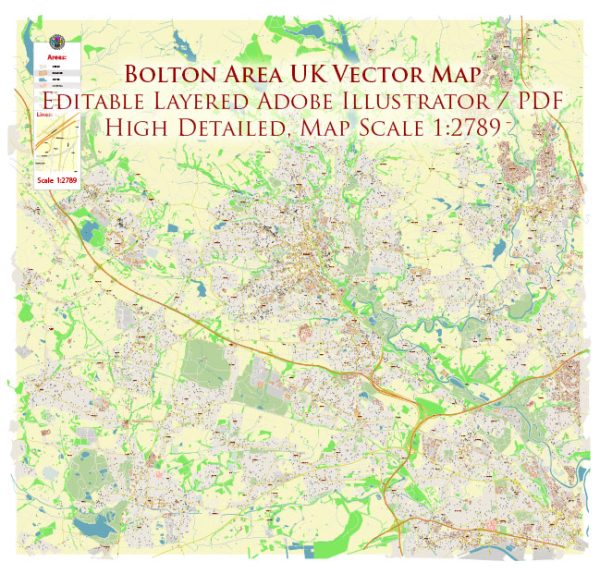Bolton is a town located in Greater Manchester, England. Its history is rich and varied, with several key developments and milestones over the centuries. Here is a brief description of Bolton’s history:
- Early History: The area that is now Bolton has been inhabited for thousands of years, with evidence of prehistoric and Roman settlements. During the medieval period, it was a small village known for agriculture and textiles.
- Market Town: Bolton was granted a market charter in 1251, which helped it grow as a market town. Its strategic location between Liverpool and Manchester made it an important trade center for textiles, primarily wool and cotton.
- Industrial Revolution: Bolton played a significant role in the Industrial Revolution. The town’s cotton industry expanded rapidly during the 18th and 19th centuries, thanks to innovations in spinning and weaving. The town’s cotton mills, some of which are still standing, were at the forefront of the textile industry.
- Transport: The development of canals and railways in the 19th century further boosted Bolton’s growth, making it easier to transport raw materials and finished goods. The Bolton and Leigh Railway, which opened in 1828, was one of the first passenger lines in England.
- Social Reform: Bolton was also a hub for social and political reform during the 19th century. It was a center of political activity and was involved in the movements for workers’ rights and the abolition of slavery.
- Urbanization: As the textile industry grew, so did the population of Bolton. The town expanded, and the surrounding villages were absorbed into it, leading to urbanization. This growth continued well into the 20th century.
- Modern Era: In the 20th century, the textile industry began to decline, leading to economic challenges. However, Bolton diversified its economy with new industries, including engineering, chemicals, and manufacturing.
- Landmarks and Institutions: Bolton is home to several notable landmarks and institutions, including the Town Hall, the Octagon Theatre, and the University of Bolton. The town also has a rich sporting history, with a prominent football club, Bolton Wanderers.
- Cultural Heritage: Bolton has a strong cultural heritage, with a vibrant arts and music scene. It also hosts a range of events and festivals throughout the year.
- Today: Bolton continues to be a thriving town within the Greater Manchester metropolitan area. It has evolved into a diverse and multicultural community with a mix of old industrial heritage and modern development.
Bolton’s history reflects the broader changes in the textile industry, urbanization, and social reform that occurred in England during the Industrial Revolution and subsequent centuries. It remains an important part of the Greater Manchester region’s cultural and economic landscape.


 Author: Kirill Shrayber, Ph.D. FRGS
Author: Kirill Shrayber, Ph.D. FRGS